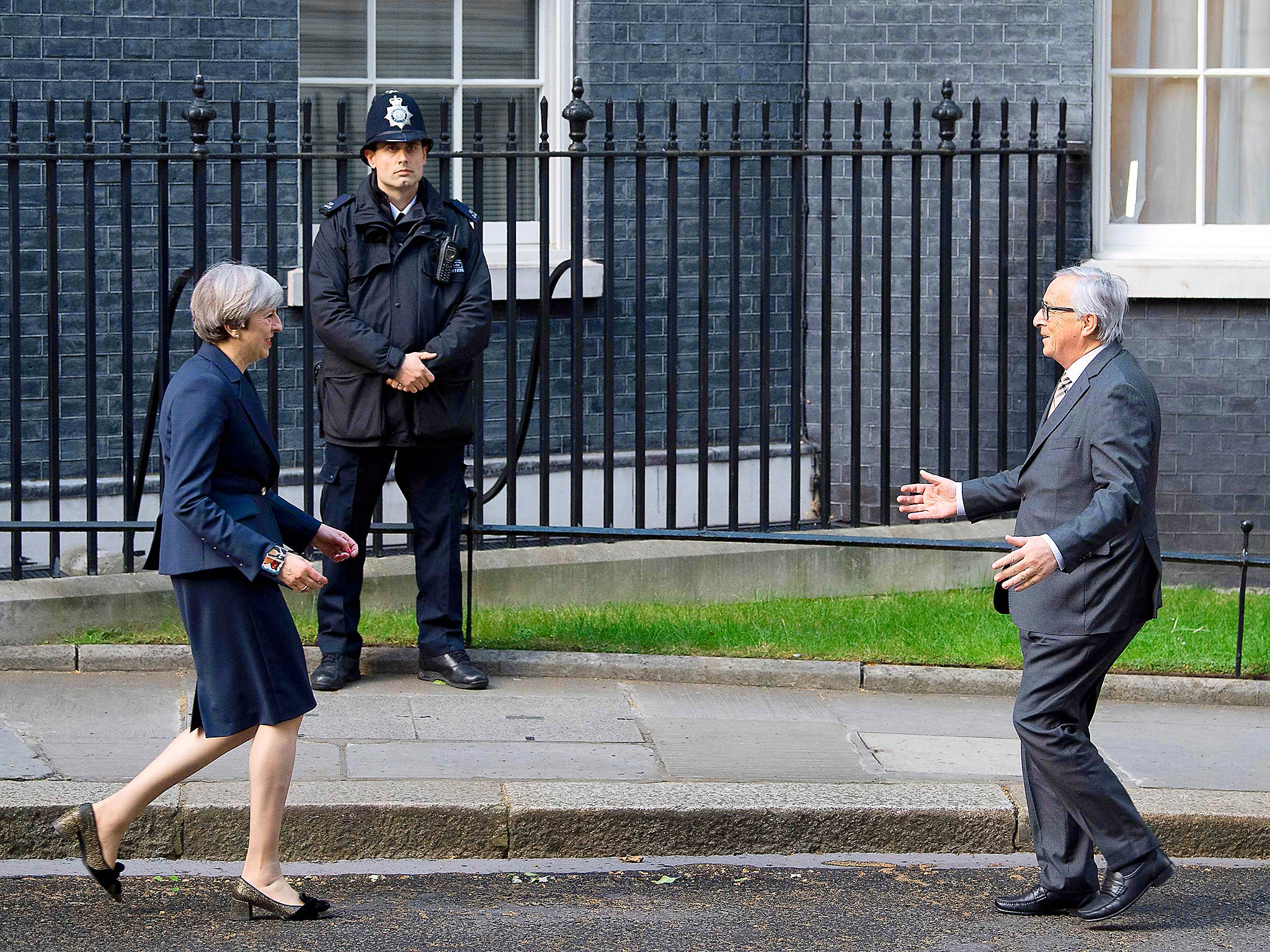We in the EU intend to protect our citizens' rights after Brexit – if that means holding British feet to the fire, so be it
EU citizens in the UK face an 85-page form and a rejection rate of almost a third if they want to stay in Brexit Britain – it’s unacceptable

An often overlooked consequence of the Brexit vote is the situation of EU citizens living in the UK. Some three million EU citizens have used their right to free movement and settled in the UK. Many of these three million have been living in the UK for years, if not decades. They have fallen in love and married in the UK, they have built a career in the UK, bought a home, and have children or grandchildren in the UK, many of whom have British nationality. Some have set up businesses or are studying in the UK. All have contributed to British society.
Since the referendum, many thousands of these citizens have decided not to take a gamble on the outcome of the Brexit negotiations, but to apply for permanent residence in the UK. The procedure has turned into a nightmare for many. It is expensive and cumbersome; the application form is 85 pages long, showing the EU has no monopoly on bureaucracy.
Information is contradictory and the criteria are almost impossible to meet. For example, how is someone who has lived in the UK for 30 years supposed to submit a list of every single trip outside the UK during those years? The authorities processing the applications are unhelpful and the rejection rate is almost one third, often based on administrative formalities. It seems that this Conservative Government wants as many people to leave the country as possible.
I have been inundated with heartbreaking correspondence from EU citizens in despair. People are frightened. This is why a number of MEPs have come together to form a task force to seek to speak up for the rights of EU nationals in the UK and also for the estimated 1.8 million UK nationals currently living in the EU. Brexit might mean Brexit, but surely, it should not mean that millions of people’s lives are turned upside down?

In February, my colleagues and I wrote to Theresa May to express some of the concerns raised by EU citizens. We received a response from a Home Office minister which I can only describe as vacuous and utterly out of touch.
The minister’s description of a well-functioning and user-friendly application procedure was fantastical and we have all the emails and correspondence from EU nationals to prove it. Despite reassurances from the Brexit Secretary David Davis to the contrary, UK ministers seem to be living in a parallel universe to those who are actually caught up in this process.
The plight of these people and their families is well-known to Prime Minister May, but she has deliberately chosen to use these people as cannon fodder in negotiations. It is perfectly within the powers of the Government to reassure people who have been part of British society for so many years that they can continue to be part of it. It is a matter of common decency.
Perhaps one of the cruellest requirements British authorities are demanding from EU citizens is that, despite paying UK taxes, they must prove they also took out additional “comprehensive sickness insurance” upon arrival in the UK, even if they are covered by the NHS. Many had no idea that this was obligatory.
In 2012, the European Commission launched legal procedures against the UK, as they deemed the requirement to be a violation of their right to freedom of movement under EU law, yet it appears that nothing has happened since 2012. A Freedom of Information request for access to the documents of this file has been refused by the commission. I have appealed against that refusal.
It is vital that citizens know all the facts around this case, for if this requirement was in fact deemed unlawful, this could save millions of people unnecessary anguish in the months and years to come. In the tough negotiations ahead of us, we must remember the human costs of Brexit and do our utmost to limit them. If this means the EU has to hold the UK Government’s feet to the fire to ensure fundamental values are respected, then so be it.
EU nationals who have lived and contributed to the UK do not have a vote in this so-called Brexit general election. They will feel even more isolated and fearful as the election campaign progresses, especially if the xenophobia that tainted the referendum rears its ugly head again.
The European Parliament has made it crystal clear the rights of citizens are our number-one priority, and we are not ready to sign off any Brexit deal that does not offer good prospects for EU citizens in the UK or British citizens in other EU countries.
Of course, this also means that the situation of UK citizens in EU countries is more likely to be addressed. The Brexit guidelines specifically state that EU citizens should be able to apply for permanent residence through smooth and simple administrative procedures. The ball is now in Theresa May’s court to make this a reality in the UK.
Sophia In 't Veld is a Member of the European Parliament from the Netherlands
Join our commenting forum
Join thought-provoking conversations, follow other Independent readers and see their replies
Comments
Bookmark popover
Removed from bookmarks